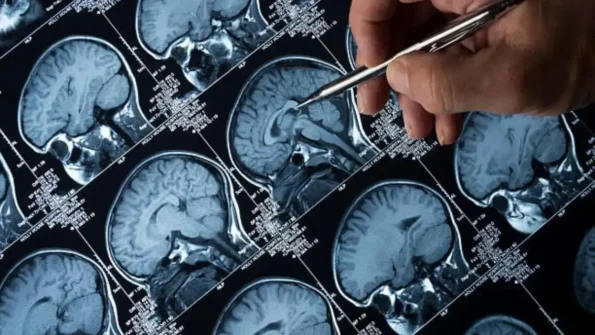Study shows earlier menopause, poor heart health can affect brain performance

Women experiencing earlier menopause can affect heart health, and can together affect brain and cognitive performance, according to a study on Tuesday, October 21.
While previous studies have established that earlier menopause is associated with a higher risk of cognitive decline and Alzheimer’s dementia later in life, little is known about the combined impact of earlier age at menopause and reduced cardiac function on brain and cognitive outcomes, the team said.
Reduced cardiac function can affect brain health by limiting the essential supply of oxygen and nutrients to the brain. This reduced blood flow can damage brain tissue, contribute to silent strokes, and increase the risk of dementia, underscoring the critical connection between heart and brain health.
The new study suggests that an early menopause negatively influences the associations between cardiac function and gray matter volume, white matter hyperintensity burden, and cognitive performance.
“We still don’t fully understand how menopause, and especially earlier menopause, affects brain aging. By examining the intersection of heart and brain health, we were keen to shed light on this important but often overlooked area of research,” said lead author Tallinn Splinter, from the University of Toronto, Canada.
The study, presented at the ongoing 2025 Annual Meeting of The Menopause Society in Orlando, involved more than 500 participants to investigate whether earlier age at menopause influences the association between cardiac function and brain.
Cardiac function was assessed using resting left ventricular ejection fraction measured on cardiac MRI. Brain MRI was used to quantify grey matter volume and white matter hyperintensity burden.
Cognition was assessed with standardised neuropsychological tests.
The researchers found that earlier menopause and reduced cardiac function may have a compounding negative effect on brain health.
“These findings underscore the importance of integrating sex-specific factors, such as age at menopause, into research on dementia risk and informing targeted prevention and intervention strategies,” said Dr. Stephanie Faubion, medical director for The Menopause Society.
This story has been sourced from a third party syndicated feed, agencies. Mid-day accepts no responsibility or liability for its dependability, trustworthiness, reliability and data of the text. Mid-day management/mid-day.com reserves the sole right to alter, delete or remove (without notice) the content in its absolute discretion for any reason whatsoever.
Search
Recent
- Guest Column| Control and collapse: New challenges of governance
- Scientists hope underwater fiber-optic cables can help save endangered orcas
- Guest Column| Control and collapse: New challenges of governance
- Guest Column| Control and collapse: New challenges of governance
- Guest Column| Control and collapse: New challenges of governance




